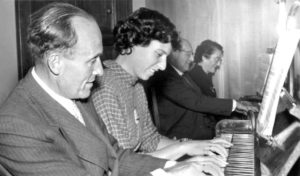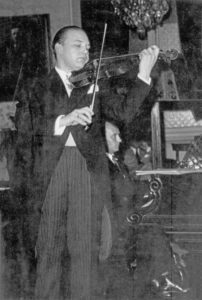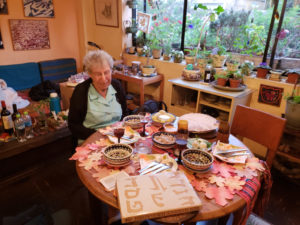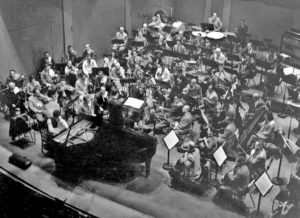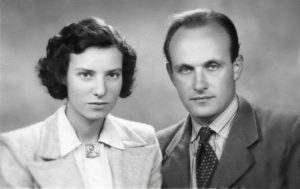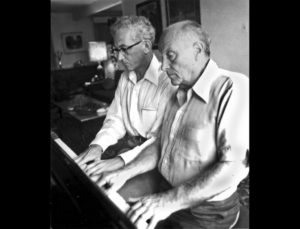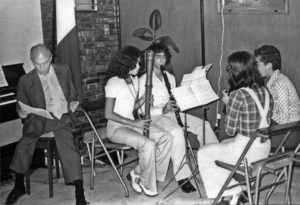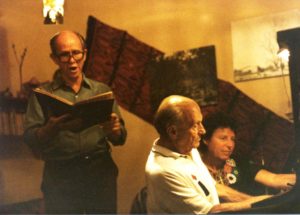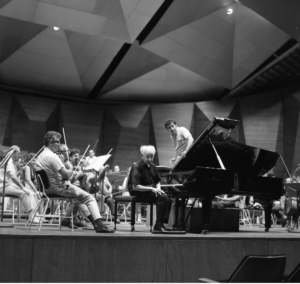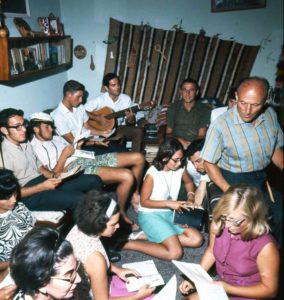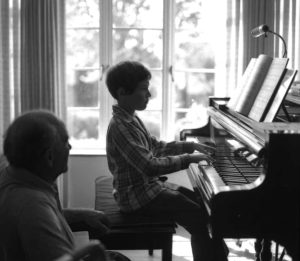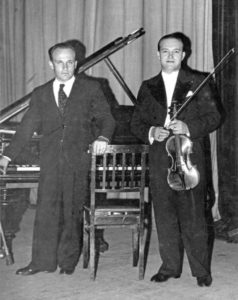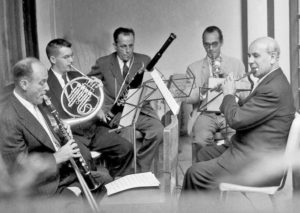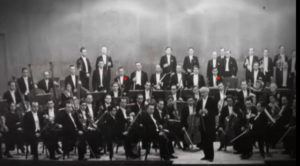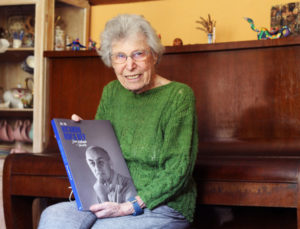Hans Lewitus: Music and Memories
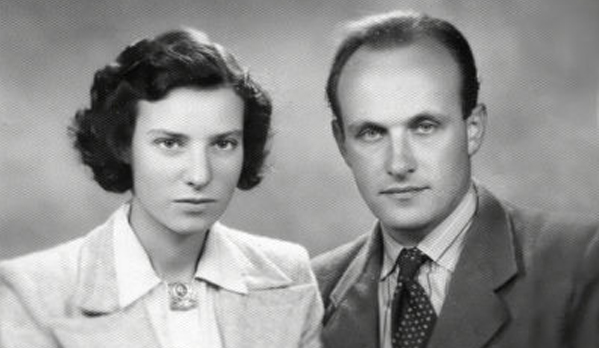
Go back in time to the earliest beginnings of the Israel Philharmonic, then called the Palestine Symphony Orchestra, with Eva Lewitus, widow of original founding member Hans Lewitus, clarinetist. Eva’s first-person testimony is a riveting oral history of the fascinating but little-known members that made the Israel Phil what it is today.
My name is Eva Lewitus. My husband, clarinetist Hans Lewitus, was one of the founding members of the Israel Philharmonic, then called the Palestine Symphony Orchestra. He was recruited by Bronislaw Huberman himself.
Huberman, a well-known violinist in Poland, founded the orchestra in 1936 to save the lives of Europe’s Jewish musicians from the Holocaust.
When Huberman connected with Hans, my husband had finished his musical studies in Austria, graduating summa cum laude in 1929 at 23 years old. It was around that time that he played with the famous Linz Orchestra.
Hans loved Israel and learned Hebrew quickly. It’s a tremendous source of pride for our family that he played in the orchestra’s very first concert.
But he told me a funny story about that. Toscanini was conducting, Rossini’s La Scala de Seta, and during the concert, the two horn players made a mistake. Toscanini was so upset that he stopped fully conducting, keeping time with the baton only. The concert was a huge success and the audience loved it, but for the musicians it was terrible, because they could tell their conductor was furious. Hans said Toscanini’s face was immobile throughout, giving no visible clues to his inner fuming.
In addition to concerts in then-called Palestine, the orchestra played in Syria and Egypt.
After two years, Hans was recruited by the National Symphony Orchestra of Peru, moved to Lima, and soon brought his mother and brother here. He was an adventurer by nature, always looking for the next challenge.
In addition to playing the clarinet, Hans was a talented pianist. Even though he contracted polio at the age of 14, he compensated with walking sticks and used the foot he could control better to hold down his other foot as needed on the piano pedals.
He also taught music lessons – and that was how our love story began.
I met Hans when a year from graduating high school. He had been married before and was older than me, but we were the perfect match.
My family moved to Lima from Czechoslovakia (via England). As soon as we heard Hitler on the radio, we knew we had to escape.
Fortunately, my father did well in Peru. One day he asked me, my mother and my brother what we would like if we could choose one gift. I chose piano lessons.
My teacher was none other than Hans. We played pieces closely together, four-handed arrangements, and it was quite romantic. We married and had three sons, all of whom went on to have families of their own and we are now a large clan.
Hans passed away in September of 1998.
Music was our life. Hans was a musician through and through – not 100%, 200%! Nearly all our friends were musicians who played with him. I taught music at the Roosevelt School here, and Hans played everywhere – accompanying famous soloists, in the orchestra, and on recordings.
When he retired from the orchestra here in Peru, he taught full time, and wrote musical arrangements, some of which have been published and made into CDs. He continued to play his entire life.
Now, my hearing isn’t so good, and music doesn’t sound the same through hearing aids – especially on recordings, as due to COVID going to live performances hasn’t been possible. However, I am also a photographer, and stay busy with capturing images and working with them on Photoshop.
It’s wonderful to remember all the special and good times, and to share these reminisces with you. As Hans always said, not everyone has to play an instrument – we need people to listen, too.
If you are interested, you may purchase and download Hans’ music here.
COEXISTENCE THROUGH MUSIC
Each year, the KeyNote program reaches more than 22,500 children in Israel.
Read More


